The Anatolian Shepherd is an ancient and majestic Anatolian Shepherd dog breed that has captured the hearts of many with its unwavering loyalty and fierce protectiveness. As a guardian of the flock and an extraordinary companion. This hardy breed has played a significant role in Turkish pastoral culture for centuries.
In this article, we will delve into the origins of the Anatolian Shepherd, exploring how this remarkable breed has evolved to become the powerful and intelligent protector that it is today. We will also discuss its recognition by the American Kennel Club.
As well as its relationship with other dogs, such as the Kangal Shepherd Dog. Whether you are considering an Anatolian Shepherd puppy or wish to learn more about this fascinating breed, join us as we journey through these magnificent Anatolian Shepherd dog's history, characteristics, and unique qualities.

Breed History
Anatolian Shepherd, also known as the Karabash Dog, has a rich and ancient history rooted in the Anatolia region of Asia Minor.
This same breed has adapted to various terrains and climates over time due to the influence of multiple ancient civilizations and migrations that have occurred in its native habitat.
Its recognition by national breed clubs worldwide has increased popularity among Anatolian Shepherd dog owners who appreciate its majestic presence as a flock guardian.
1. Development in Anatolia (Asia Minor)
In Anatolia (Asia Minor), the development of a guardian of the flock and majestic companion has been noted.
The breed is known as the Anatolian Shepherd and has long been used in this region to protect sheep from predators while they graze.
This breed is an independent thinker, loyal to its family, and makes a great guard Anatolian Shepherd dog when given proper socialization and training.
It can be stubborn sometimes, but it can be taught basic commands with patience. It does best in an environment with a securely fenced yard where it can roam freely.
Since this breed is prone to physical activity, providing it with plenty of space for exercise is important for its overall health, especially during its younger years when Anatolian Shepherd dogs age faster than humans.
2. Adaptation to diverse terrains and climates
The Anatolian Shepherd has proven to be an adaptable breed, capable of thriving in various terrains and climates. This is due to their thick undercoat that helps insulate them from the cold, as well as their large size and muscular build, which allows them to traverse hilly terrain with ease.
They have also been known to show resilience against certain diseases, such as hip dysplasia which is common among other breeds. In addition, they are sensitive to anesthesia, meaning they require fewer drugs when undergoing medical procedures.
With a life expectancy ranging between 11-13 years, the Anatolian Shepherd is a long-time companion for those looking for a loyal pet or guardian of the flock.
3. Influence of ancient civilizations and migrations on the breed
Evidence suggests that the Anatolian Shepherd was influenced by ancient civilizations and migrations of people, leading to its development as a robust breed.
Ancient records show that the Anatolian Shepherd is an ancient dog breed, with references dating back to 2200 BCE in the form of Assyrian bas-reliefs.
It is believed that this breed descended from the now-extinct Kangal Shepherd Dog, which nomadic Turkic people in Central Asia originally bred.
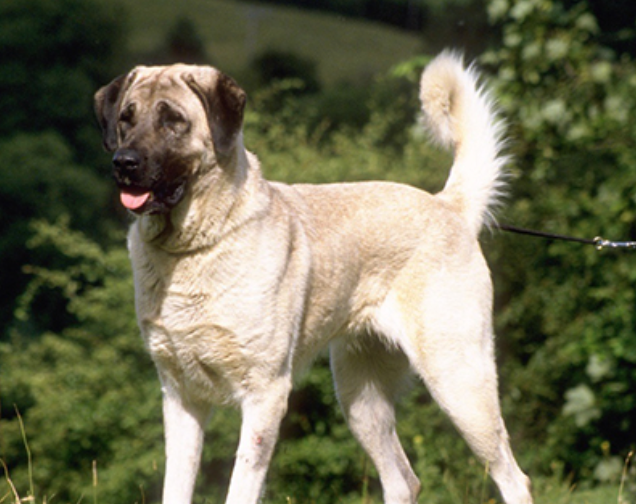
Physical Characteristics
The Anatolian Shepherd is a large, muscularly built Anatolian Shepherd dog with a thick coat that comes in many colors and types.
Its head is large and broad with pronounced facial features such as almond-shaped eyes and triangular ears.
Compared to other breeds, the Anatolian Shepherd stands out for its size and strength, making it an excellent guardian of flocks.
1. Size and build
This breed possesses a large and powerful build, making it well-suited for various tasks. The Anatolian Shepherd is among the largest Anatolian Shepherd dog breeds, with males typically ranging from 27 to 32 inches tall at the withers.
And females average between 25 to 29 inches. This size allows them to serve as guardians of flocks or as companions for larger families. In addition, they usually weigh around 100 to 150 pounds, which gives them their muscular frame and strength.
2. Coat colors and types
Research suggests that the coat of an Anatolian Shepherd can range from short to long in length, with varying colors depending on the region. The most common colors for this breed are fawn and white, although other colors, such as brindle and sable, may also occur. Female Anatolian Shepherds tend to have longer coats than males.
Regardless of their length, the double layers of fur should be thick and quite dense. Dead hair should regularly be brushed out during grooming sessions at least twice a year. Regular at home grooming will make brushing out dead hair easier over time and help keep the coat healthy and shiny.
3. Coat colors and types
With its large, majestic head and strong facial features, the Anatolian Shepherd is a sight to behold. The breed is ancient, with a long history of working as shepherd's dogs in the Anatolia region of Turkey.
They have characteristics of other guard Anatolian Shepherd dogs: large size, alertness, and power. However, they also possess the gentleness and loyalty of family pets.
Their heads feature almond-shaped eyes that are usually dark brown, small ears that stand erect on the sides of their head, and a black nose that fits perfectly on their face.
4. Comparison with other breeds
Comparing the Anatolian Shepherd with other breeds reveals a dog that is particularly well-suited for guarding due to its strength and intelligence.
The Anatolian Shepherd puppy has a sturdy build, making them capable of handling large flocks of animals or protecting property from intruders.
They are also highly intelligent, having been bred as working dogs since ancient times. This makes them excellent problem solvers and guardians, often able to detect potential danger before it arises.

Temperament and Personality
The Anatolian Shepherd is known for its intelligence and independence, loyalty and protectiveness, and socialization and adaptability. As it is an ancient breed of guardians, they are typically independent thinkers that can learn quickly.
They have a strong instinct to protect their flock or family, which makes them excellent guard dogs. Furthermore, this breed can be socialized well with positive reinforcement training and exercise but requires consistency to adapt to new situations.
1. Intelligence and independence
Characterized by sharp intuition and a high degree of autonomy, this breed is renowned for its ability to act independently to protect its charges. The Anatolian Shepherd's independent nature requires early socialization with humans, mental stimulation, and regular veterinary care.
This breed can be trained successfully when taught with patience and consistency, as they are highly intelligent. They are also known to excel at dog sports, obedience, tracking, and herding competitions due to their quick learning abilities.
2. Loyalty and protectiveness
Protective and loyal, the Anatolian Shepherd is renowned for its ability to care for its charges selflessly. The breed typically does not need any special guard dog training, as it is naturally suspicious of strangers and will protect livestock from predators.
Its loyalty towards humans extends to the immediate family members that it lives with, although it remains generally friendly with other people. Being a natural herding kangal dog, the Anatolian Shepherd is highly observant and alert when in close proximity of its flock or family.
Furthermore, they possess immense courage, allowing them to face off against even larger animals if needed. The protection instincts of the Anatolian Shepherd are so strong that they can act without being commanded to do so; this makes them particularly adept at guarding their charges without much direction from their owners.
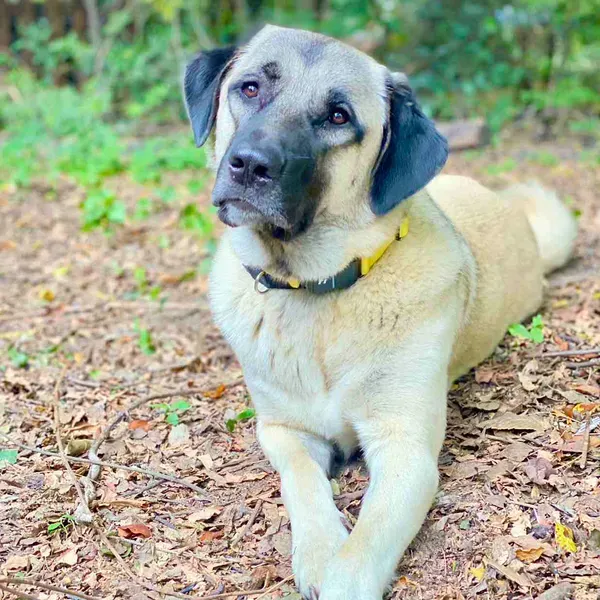
3. Socialization and adaptability
The Anatolian Shepherd is a separate breed from other dogs due to its strong loyalty and protectiveness. With proper socialization, it can be just as loving and gentle with its family members, including young children, as any other breed.
As the dog reaches adulthood, it will become more protective of its home and family environment but still remain social and friendly towards people it knows.
Proper socialization also allows the Anatolian Shepherd to adapt well to being around other animals they may encounter while in public or on walks.
4. Training and exercise requirements
An Anatolian Shepherd can become a loyal and reliable companion with proper training and exercise. Although the breed is naturally independent, it is important to begin socializing them from a young age.
Anatolian Shepherds were originally bred to guard livestock in harsh conditions, so they need mental stimulation and regular physical activity. These types of dogs love a challenge like a puzzle toy session or even time with a flirt pole. It is important to note that they should always be supervised while exercising as they have a strong prey drive and may take off after small animals or birds.
But always make sure to keep track of your pup, especially during training. You can use a Fi Smart Dog Collar to watch their location and keep track of daily exercise.
Working Abilities
The Anatolian shepherd is a large and powerful guardian breed of dog that has long been known for its ability to protect livestock from predators.
Its adaptability to various livestock species and its use in wildlife conservation efforts make it an invaluable asset to farmers and ranchers.
Furthermore, its potential for search and rescue operations and therapy work make it an ideal companion for many people looking for a loyal friend.
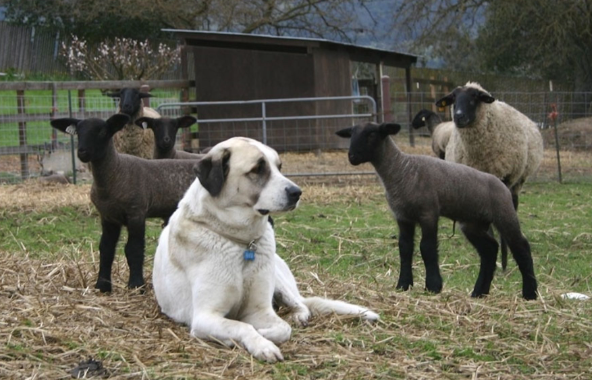
1. Livestock guardian skills
Drawing upon centuries of experience, the species has developed a highly effective method of protecting livestock from predators, with anecdotal evidence suggesting that they can even detect imminent danger from miles away.
Anatolian shepherd dogs (ASDs) have been used in flocks since the bronze age, and their skills as livestock guardians are widely celebrated:
- They are naturally wary of strangers and will Anatolian shepherds aggressively protect their flock if necessary;
- They bond closely with both people and animals, forming strong relationships;
- The breed is so loyal to its family that it is often considered part of the same family;
- An active Anatolian Shepherd Dog Club member can help owners learn how to train their animals for best protection.
Anatolian shepherds possess an innate strength and courage, making them excellent guardians for any type of farm or ranch.
2. Adaptability to various livestock species
Gliding through fields with graceful agility, the ASDs possess an innate adaptability to various livestock species. The Anatolian Shepherd Dog (ASD) is a hardy breed renowned for its ability to guard not only sheep and cattle but also horses and goats.
These dogs are known for their loyalty and protective nature; they are often used as hunting dogs or family pets, yet their herding instincts remain sharp even in domesticated settings.
Anatolian Shepherd puppies can be conditioned to different types of animals at an early age, making them suitable guardians for a range of species. The Kangal shepherd is also highly adaptable.
3. Use in wildlife conservation efforts
With their strong instinctive protective nature, ASDs have been utilized in various wildlife conservation efforts. From the protection of livestock from predators to the rescue of endangered animals, ASDs have proven to be an invaluable tool for conservationists around the world:
- Protection and Preservation of Livestock: ASDs are frequently employed by sheep and cattle farmers to try to protect their herds from potential predators such as wolves or coyotes. The presence of an ASD is often enough to deter these animals from attacking a herd.
- Endangered Species Rescue: Several animal rescue groups have harnessed the power of ASDs by training them as part of search and rescue teams. These giant breed dogs are trained for life-threatening situations, such as floods or earthquakes and can be deployed quickly in emergencies where human safety is at risk.
4. Potential for search and rescue and therapy work
The potential for search and rescue and therapy work is another area where the Anatolian Shepherd excels. This dog breed generally has high endurance levels and a strong sense of smell.
Making them ideal for activities such as search and rescue. They are also considered among the most intelligent dog breeds, allowing them to learn new commands needed for this type of work easily.
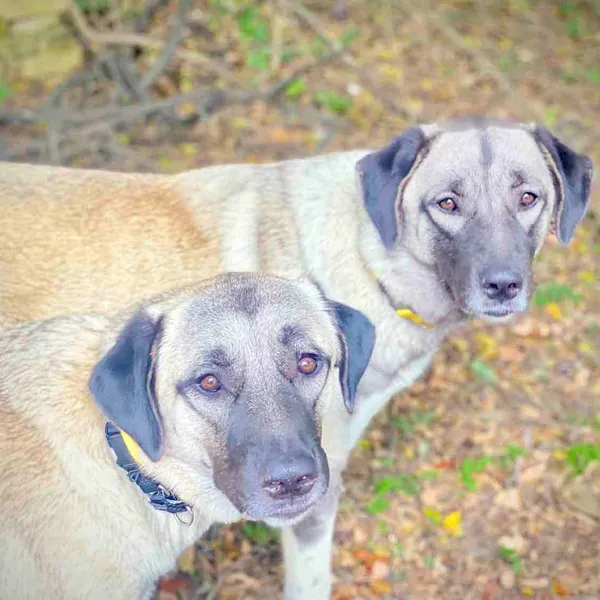
Health and Lifespan
The Anatolian shepherd is a majestic and loyal companion that makes an excellent guardian of the flock.
It is important to understand the average life expectancy of this breed, as well as common health issues like hip and elbow dysplasia, hypothyroidism, entropion, and ectropion, to provide preventive care through regular check-ups.
Responsible breeding practices are also essential for promoting good health and longevity in the Anatolian shepherd.
1. Average life expectancy
This canine breed can be expected to live a long life on average. The Anatolian Shepherd is considered one of the larger breeds, typically weighing between 75 to 150 pounds. Dogs that are smaller or heavier than this range have been known to exist, but they are not as common.
When properly cared for, these dogs can live up to 12-15 years and beyond. This breed requires regular brushing out to keep their coats free from matting and debris, which can cause skin irritation and infection. Proper grooming also ensures that the coat keeps its natural oils intact, reducing dryness and helping maintain a healthy coat.
2. Common health issues
This canine breed is predisposed to certain health issues, such as hip and elbow dysplasia, hypothyroidism, entropion, and ectropion.
Hip and elbow dysplasia are common among large-breed dogs such as the Anatolian Shepherd. It is caused by a joint malformation which can lead to joint pain, lameness, or arthritis.
Hypothyroidism affects the thyroid gland causing problems with metabolism and weight gain. Symptoms include lethargy and hair loss. Entropion occurs when the eyelid turns inwards, causing eyeball irritation due to contact with eyelashes; this can lead to vision problems if left untreated.
Ectropion is similar but causes the lower lid to turn outwards rather than inwards, resulting in watery eyes from excessive tearing.
3. Preventative care and regular check-ups
Preventing health issues in Anatolian Shepherds is key to the long-term health and well-being of the breed. Veterinarians recommend regular check-ups to ensure that any potential health problems can be detected and addressed early on.
As a guardian of its flock, an Anatolian Shepherd should receive regular physical examinations, vaccinations, parasite control, appropriate nutrition, and exercise to maintain good health.
A routine preventative care schedule should include a complete physical examination at least once a year, with particular attention paid to the eyes, ears, and joints.
Grooming and Maintenance
Grooming and maintaining the Anatolian Shepherd is critical to providing proper care for this majestic companion.
A comprehensive routine should include coat care and shedding, nail trimming and dental hygiene, ear cleaning, parasite prevention, and tips for managing seasonal changes.
Regular grooming can help ensure the dog’s coat stays clean and healthy while preventing skin issues from developing due to dirt or parasites.
1. Coat care and shedding
Attending to the coat of this breed requires regular brushing, as it sheds heavily. The Anatolian Shepherd is a double-coated breed and needs frequent grooming. Its thick, weather-resistant outer coat consists of long.
Coarse guard hairs protect the animal from extreme temperatures and harsher elements such as snow, rain, or wind. Its undercoat is designed for insulation and is short and soft.
Depending on the climate in which the dog lives, it may shed year-round or seasonally:
- Year-round Shedding: In climates where temperatures don't drop significantly during winter months, an Anatolian Shepherd's shedding cycle may not vary much throughout the year. Regular brushing will help reduce shedding all year round.
- Seasonal Shedding: In colder climates where temperatures drop significantly during winter months, an Anatolian Shepherd's shedding cycle can vary greatly throughout the year. During seasonal changes when outdoor temperatures fluctuate dramatically from hot to cold or vice versa, extra attention should be given to brushing to keep excess fur off furniture and carpets indoors.
2. Nail trimming and dental hygiene
Proper nail trimming and dental hygiene are essential for the health of this breed. Anatolian Shepherds generally have strong nails that can grow quickly, so regular trimming is important to prevent cracking or splitting of the nails.
Nails should be trimmed when they reach a length that disrupts the dog’s normal gait or causes discomfort when walking on hard surfaces.
Inspecting their teeth regularly and brushing them at least once a week with toothpaste formulated specifically for dogs is also important. Tartar buildup can lead to tooth decay, which can cause pain and tooth loss in dogs if left untreated.
3. Ear cleaning and parasite prevention
Regular ear cleaning and parasite prevention are important components of grooming for this breed. The Anatolian Shepherd is a breed that is more prone to ear infections than other breeds because of its large, floppy ears.
Regularly cleaning the ears with a warm damp cloth or soft cotton swab and checking for parasites can help reduce the risk of infection and irritation. Additionally, it is important to regularly check for fleas and ticks to keep the dog healthy:
- Look for black specks on the skin, which could indicate flea droppings
- Check around the eyes, mouth, and ears, as these areas attract parasites
- Be sure to inspect between any folds of skin where insects may be hiding
Using preventative treatments such as topical solutions or oral medications designed specifically for dogs is also beneficial. These treatments should be administered according to directions from a veterinarian to ensure proper dosage and safety.
Finding and Choosing an Anatolian Shepherd
Breeders and adoption options should be considered when looking for an Anatolian Shepherd. It is important to evaluate the reputation and practices of breeders to ensure a healthy puppy with a good temperament.
Meeting the parents and assessing the litter is necessary to be sure they are suitable for your family and lifestyle, as well as selecting the right puppy from that litter.
1. Breeders and adoption options
The Current Section outlines various breeding and adoption options for those interested in owning one of these intelligent and noble canines.
When looking for an Anatolian Shepherd, potential owners have several options to consider, such as:
- Acquiring a puppy from a reputable breeder
- Adopting a shelter or rescue group
- Participating in a breeding program
- Networking with other owners of Anatolian Shepherds.
Reputable breeders often provide health clearances and genetic testing on their puppies, along with veterinary records and information about the parents. Potential buyers should always carefully research any breeder before making a commitment to purchase a puppy.
2. Evaluating breeder reputation and practices
Evaluating the reputation and practices of breeders is an important step in ensuring a healthy, well-adjusted puppy. According to the American Kennel Club, 8 out of 10 people who acquire a dog from a breeder are satisfied with their purchase.
When looking for an Anatolian Shepherd, potential owners should research reputable breeders and ask questions about their practices before deciding on one. It's important to ensure that the breeder is knowledgeable about the breed and has been breeding dogs responsibly for several years.
Owners should also inquire about any health tests that have been performed on the parent dogs and puppies, as well as any guarantees or warranties offered by the breeder. It is also important to visit the premises.
Where the puppies are raised and observe how they interact with humans and other animals. The environment should be clean and safe, with plenty of space for exercise, socialization, and playtime.
Living with an Anatolian Shepherd
Adjusting to life with a large dog is the first step in creating a successful relationship with an Anatolian Shepherd.
To ensure that the environment is safe and comfortable, owners should ensure their home has adequate space to accommodate the size of their canine companion.
Lastly, balancing work and leisure activities is important by providing regular and positive socialization opportunities and consistent obedience training for the Anatolian Shepherd.
1. Adjusting to life with a large dog
A large dog can be a powerful source of security and solace with its strong presence and protective nature. When bringing an Anatolian Shepherd into the home, it’s important to consider some adjustments that need to be made for both safety and comfort.
Here are a few tips:
- Make sure to provide plenty of space for the dog to roam, as they can become restless in small areas.
- Invest in quality chew toys, treats, and other forms of enrichment so your furry companion can express themselves safely.
- Research local laws on leash requirements, noise regulations, and other legal matters that may affect your relationship with your new dog.
- Spend time socializing with their peers through playgroups or canine classes so they learn proper etiquette with other dogs and humans alike.
Establishing these routines will help smooth the transition while ensuring you have a healthy relationship with your Anatolian Shepherd from day one!
2. Creating a safe and comfortable environment
Creating a safe and comfortable environment for a large dog is essential to responsible pet ownership.
Anatolian Shepherds are often used as guard dogs, so providing them with an area that meets their needs and keeps them safe is important. The owner should secure the property boundaries with a sturdy fence.
Ensure there are no gaps or weak points that the dog or other animals can exploit. In addition to fencing the perimeter, owners should also consider installing suitable gates if necessary and check these regularly for signs of damage or wear.
3. Balancing work and leisure activities
Examining the role of work and leisure activities in maintaining a healthy lifestyle for an Anatolian Shepherd can provide insights into the most effective ways of caring for this majestic guardian of the flock.
Due to their naturally strong herding instinct, owners must provide a wide range of physical and mental stimulation to remain mentally and physically active. This can include exposure to other animals, people, or places and providing daily walks, jogs, and interactive games such as fetch or tug-of-war.
It is also important to give them regular breaks from work activities to allow them to rest or engage in playtime with family members. Additionally, it is beneficial for owners to provide regular access to outdoor areas where their dogs can explore safely under supervision.
Conclusion
The Anatolian Shepherd stands tall amongst its canine peers, an impressive figure of strength and loyalty. Their beauty is only matched by their unwavering dedication to their owners and the responsibility they take on as guardians of the flock.
Their natural intelligence allows them to easily manage large groups while providing a safe environment for all. And although they may come across as serious and intimidating, beneath their rugged exterior lies a heart full of love.
Their majestic presence has captivated many throughout history, but those who have enjoyed sharing life with an Anatolian Shepherd know they are truly unique. With a strong commitment to providing companionship and protection, there is no question why these unique dogs have become such beloved members of society.
FAQ
Are Anatolian Shepherds Nocturnal?
Anatolian Shepherds are known for their strong guarding instincts, which often manifest in nocturnal behavior. Traditionally used to protect livestock from predators during the night, these dogs are naturally more alert and active after dark. While not strictly nocturnal, their tendency to stay vigilant at night makes them excellent guardians for rural or farm settings. If you have an Anatolian Shepherd, you might notice them being particularly active or alert during nighttime hours.
Do Anatolian Shepherds Drool?
Anatolian Shepherds are not typically heavy droolers compared to some other large breeds. While they might drool occasionally, especially after drinking water or during hot weather, excessive drooling is not a common trait of this breed. If your Anatolian Shepherd is drooling excessively, it could be due to other factors such as dental issues, heat, or excitement, and it may be worth consulting a veterinarian.
Are Anatolian Shepherds Mastiffs?
Anatolian Shepherds are sometimes confused with mastiffs due to their size and guarding capabilities, but they are a distinct breed. Originating from Turkey, Anatolian Shepherds were bred specifically for protecting livestock, and while they share some characteristics with mastiffs, they are not classified as such. The breed has a unique history and set of traits that distinguish it from the mastiff family.
Do Anatolian Shepherds Bark a Lot?
Anatolian Shepherds are known for their barking, which is a key part of their guarding behavior. They use barking as a tool to alert their owners of potential threats and to deter predators. While this makes them excellent protectors, it can also be a challenge for owners who live in close quarters with neighbors. Proper training and socialization can help manage their barking tendencies to ensure they are alerting you appropriately without becoming a nuisance.
Are Anatolian Shepherds Rare?
Anatolian Shepherds are considered a relatively rare breed, especially outside their native Turkey. Their specialized role as livestock guardians and their significant size make them less common as pets compared to other breeds. However, their unique abilities and loyal nature have garnered them a dedicated following among those who need their guarding skills or who appreciate their strong, protective instincts.
Are Anatolian Shepherds Affectionate?
Anatolian Shepherds are known for their independent and protective nature, which might make them seem less affectionate compared to other breeds. However, they are deeply loyal to their families and can be very loving in their own way. They tend to show affection through protective behaviors and enjoy being close to their human companions, often forming strong bonds with those they consider part of their "flock."
Are Anatolian Shepherds Easy to Train?
Training an Anatolian Shepherd can be challenging due to their independent and stubborn nature. Bred to make decisions on their own while guarding livestock, they are less inclined to follow commands blindly. Successful training requires patience, consistency, and positive reinforcement. Early socialization and obedience training are crucial to manage their strong will and to ensure they become well-behaved members of the family.
Do Anatolian Shepherds Like Cold Weather?
Anatolian Shepherds are well-suited to cold weather, thanks to their thick double coats that provide insulation against harsh climates. Originating from the rugged terrains of Turkey, they have adapted to withstand both hot and cold conditions. While they thrive in colder environments, it’s important to ensure they have adequate shelter and protection from extreme temperatures to keep them comfortable and healthy.
For more articles related to the Anatolian Shepherd, check these out:
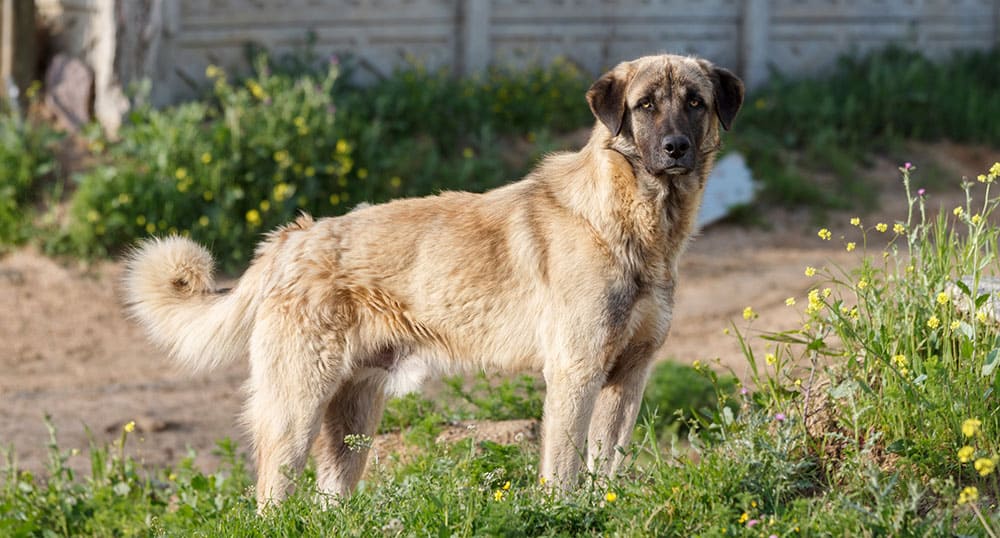
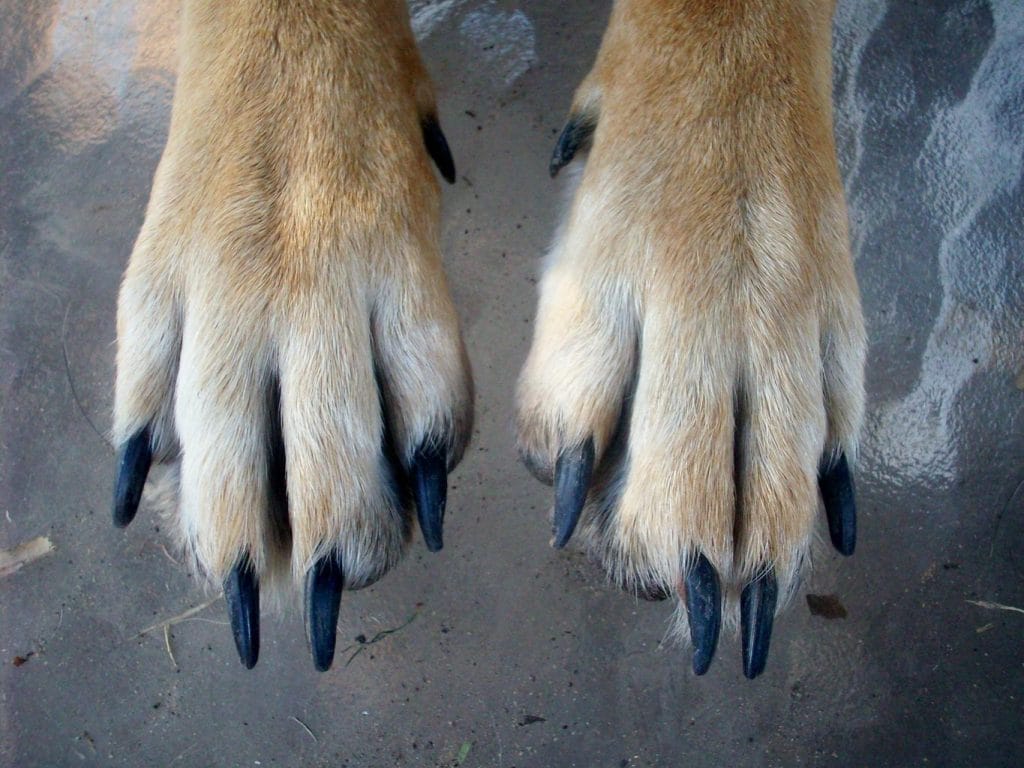
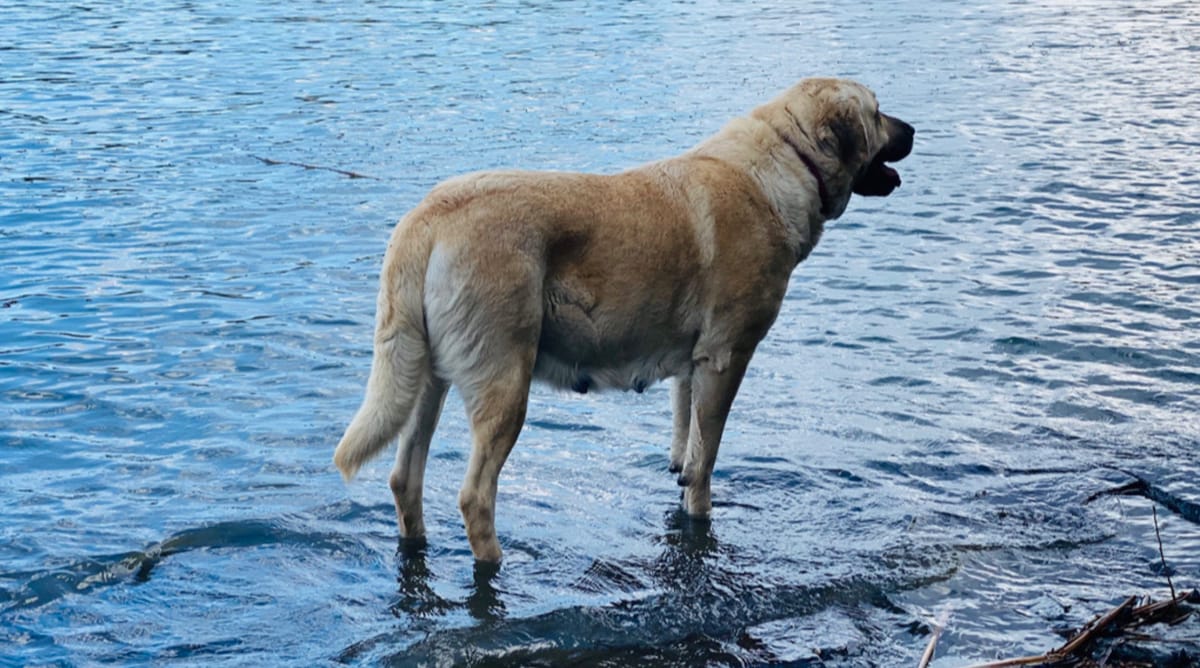
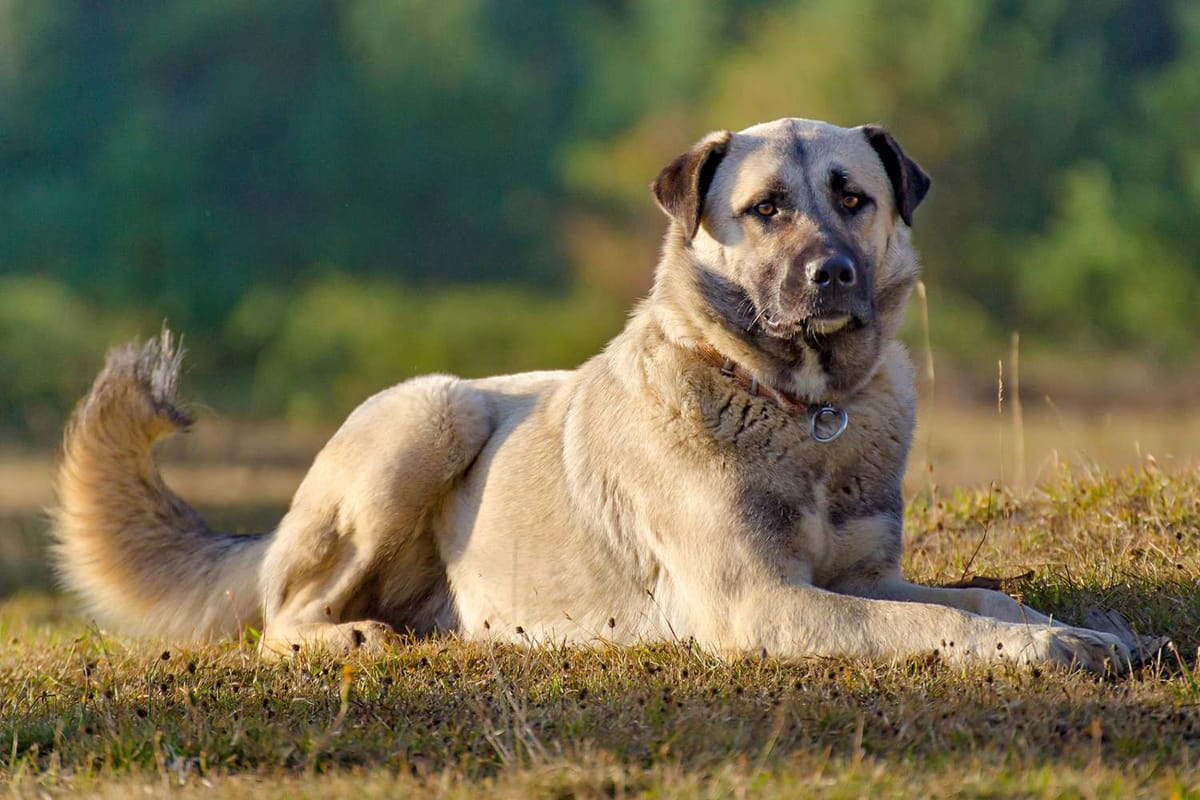


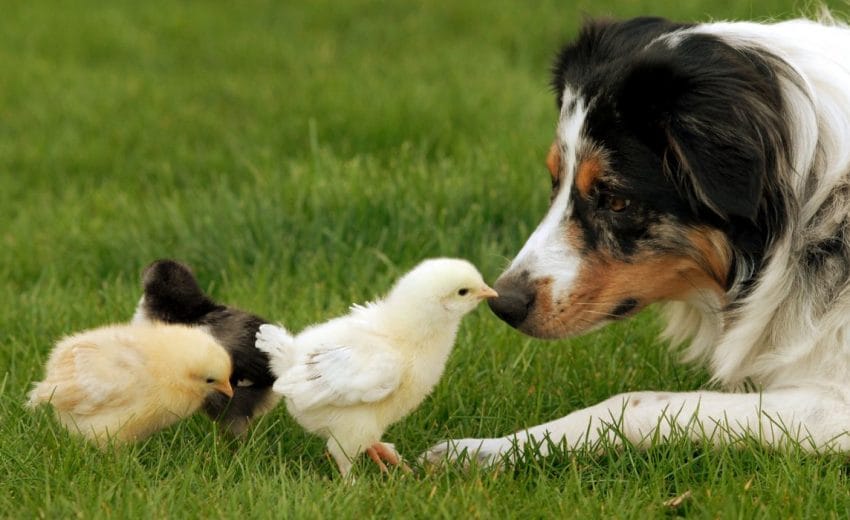

For more helpful articles about pet-parenting tips, check out the Off Leash blog at TryFi.com.
Want to know more about TryFi.com? The Fi Dog Collar is a GPS tracking collar that not only keeps track of your dog’s location, activity levels, and sleep patterns, but it also alerts you if your dog escapes your backyard. This is the fastest way to find your dog after an escape. Try the Fi Dog Collar today!







